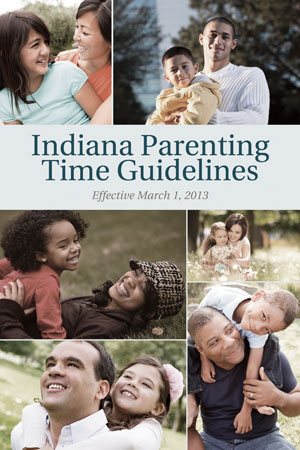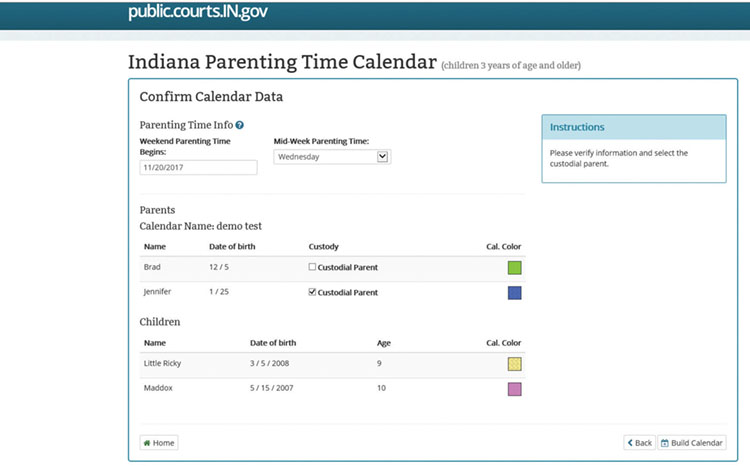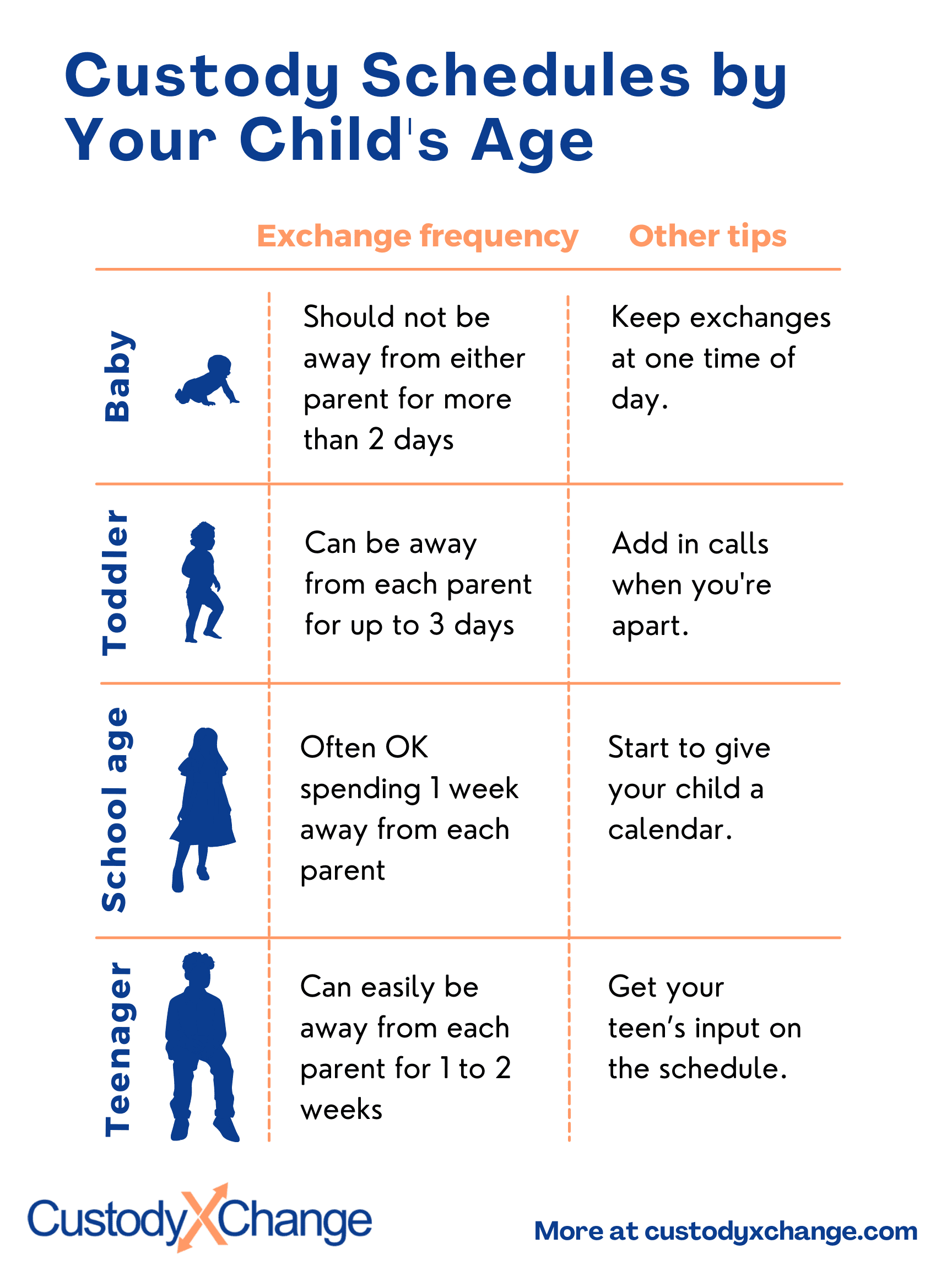Parenting time guidelines help ensure fair and balanced schedules for families. They are essential for creating consistent routines for children.
These guidelines are designed to support both parents and children. They offer a roadmap for when children will spend time with each parent. This structure helps minimize conflicts and misunderstandings. Knowing and following these guidelines can make a huge difference in co-parenting.
They promote stability and emotional well-being for the children involved. Understanding these guidelines can be a lifesaver for families navigating post-divorce or separation. So, what exactly are these guidelines, and how can they help your family? Let’s explore the basics and how they can make co-parenting smoother for everyone involved.
Importance Of Parenting Time
Parenting time is crucial for the healthy development of children. It ensures that both parents stay involved in their child’s life. This time spent together fosters emotional bonds and helps in the overall well-being of the child. Let’s delve deeper into why parenting time is so important.
Benefits For Children
Children benefit greatly from spending time with both parents. They feel more secure and loved. This stability helps them grow into well-adjusted adults. Here are some key benefits:
- Emotional Stability: Regular contact with both parents reduces anxiety and stress.
- Academic Success: Children perform better in school with active parental involvement.
- Social Skills: They learn better social interactions and empathy.
- Behavioral Improvement: Consistent parenting leads to fewer behavioral problems.
Impact On Parent-child Bond
Spending quality time strengthens the parent-child bond. This bond is vital for the child’s emotional and psychological development. Here are some ways this bond benefits both parents and children:
- Trust Building: Children learn to trust and rely on their parents.
- Open Communication: It encourages open and honest conversations.
- Shared Experiences: Creating memories fosters a sense of belonging.
- Conflict Resolution: It teaches problem-solving and conflict resolution skills.
| Aspect | Benefit |
|---|---|
| Emotional Stability | Reduces anxiety and stress |
| Academic Success | Better school performance |
| Social Skills | Improved social interactions and empathy |
| Behavioral Improvement | Fewer behavioral problems |
| Trust Building | Children learn to trust their parents |
| Open Communication | Encourages honest conversations |
| Shared Experiences | Fosters a sense of belonging |
| Conflict Resolution | Teaches problem-solving skills |
Creating A Balanced Schedule
Creating a balanced schedule for parenting time can be challenging. Every parent wants to ensure fairness while considering daily responsibilities. A well-planned schedule helps maintain harmony and ensures that both parents spend quality time with their children.
Equal Time Distribution
Ensuring an equal time distribution between both parents is essential. It promotes a sense of stability for the children. This balance helps kids feel secure and loved by both parents.
Start by mapping out the week. Divide days and nights fairly. Alternate weekends can provide each parent with extended time. Remember to consider holidays and special occasions in your schedule.
Considering Work And School
Work and school schedules play a significant role in creating a balanced schedule. Align your parenting time with your work hours. This ensures that your time with your children is meaningful.
Consider your children’s school activities. Make sure that both parents can attend important events. This inclusivity strengthens the child’s bond with each parent. Also, consider after-school activities. Plan your schedule to allow time for these events.
Communication Strategies
Effective communication strategies are crucial for successful parenting time. Clear, respectful communication ensures both parents work together for the child’s best interest. Let’s explore key strategies for open dialogue and conflict resolution.
Open Dialogue
Open dialogue is the foundation of co-parenting. Share important information about the child’s schedule and activities regularly. Use a shared calendar to keep track of important dates. This ensures both parents stay informed.
Listen actively to each other’s concerns. Respond thoughtfully and respectfully. Avoid interrupting or dismissing the other parent’s views. This builds trust and cooperation.
Conflict Resolution
Conflicts are natural in co-parenting. Address conflicts promptly and calmly. Focus on the issue, not the person. Use “I” statements to express your feelings without blaming. For example, say, “I feel worried when our plans change suddenly.”
Seek compromises that benefit the child. Sometimes, a neutral third party, like a mediator, can help resolve disputes. This keeps the focus on the child’s well-being.
Flexibility In Planning
Parenting time guidelines often emphasize structure. Yet, life can be unpredictable. Flexibility in planning is crucial. Parents need to adapt to changing situations. This approach helps maintain harmony. It ensures the best interest of the child.
Embracing flexibility strengthens family bonds. It shows children that parents can work together. Here, we explore key areas where flexibility is essential.
Handling Emergencies
Emergencies happen. A child may fall ill suddenly. Or a parent might face unexpected work demands. In such cases, flexibility is key. Parents should communicate openly. They must prioritize the child’s well-being. Adjusting schedules can ease stress. It shows children that parents are there for them.
Adjusting For Special Events
Special events are part of life. Birthdays, school plays, or family gatherings can arise. Parents need to be flexible. Adjusting the parenting schedule for these events is important. It allows children to enjoy memorable moments. It also fosters a sense of normalcy. Parents should discuss these events in advance. This ensures a smooth adjustment.
Flexibility in planning enhances the parenting experience. It benefits everyone involved. It creates a nurturing environment for children. They feel loved and supported. Parents, on the other hand, feel more connected and cooperative.
Legal Considerations
Legal considerations in parenting time guidelines are crucial. Understanding these helps ensure compliance with the law. Parents need to be aware of custody agreements and court orders. This ensures that the best interests of the child are met.
Understanding Custody Agreements
Custody agreements outline the responsibilities and rights of each parent. These agreements are legally binding. They can include physical custody and legal custody.
Physical custody refers to where the child lives. Legal custody involves decision-making about the child’s welfare. It covers education, healthcare, and religion.
Parents can have joint or sole custody. Joint custody means both parents share responsibilities. Sole custody means only one parent has full responsibility.
Following Court Orders
Court orders are mandatory for all parties involved. They ensure that parenting time is fair and consistent. Not following court orders can lead to legal consequences.
Parents should always adhere to the schedule set by the court. Changes to the schedule should be approved by the court. Communication with the other parent is essential. This helps avoid conflicts and misunderstandings.
Here are some tips for following court orders:
- Keep a copy of the court order handy.
- Follow the schedule strictly.
- Communicate any issues promptly.
- Avoid making changes without approval.
Sticking to these guidelines helps maintain a stable environment for the child. It also shows respect for the legal process.

Co-parenting Techniques
Effective co-parenting involves several techniques. These methods help parents work together. They ensure children receive consistent care and support. The key to successful co-parenting lies in communication and cooperation.
Unified Parenting Approach
Presenting a unified front is crucial. Children need stability. When parents agree on rules and routines, children feel secure. Discussing and setting common goals can help. It ensures both parents follow the same guidelines. This consistency is comforting for children.
Parents should communicate often. Share updates about the child’s progress and needs. This keeps both parents informed. It helps in making joint decisions. Avoid arguing in front of children. They should see their parents as a team.
Respecting Each Other’s Roles
Respect is vital in co-parenting. Each parent plays a unique role. Recognize and value these roles. It builds a positive environment for the child. Avoid criticizing the other parent. Negative comments can confuse and distress the child.
Encourage your child to spend time with both parents. This strengthens their bond. It also ensures the child feels loved and supported by both parents. Celebrate each other’s contributions. Acknowledge the efforts made by the other parent. It fosters mutual respect and cooperation.
Maintaining Consistency
Maintaining consistency in parenting time guidelines is vital for a child’s well-being. Children thrive on routine and stability, making it essential for parents to establish and follow consistent schedules. This consistency helps children feel secure and understand what to expect in their daily lives.
Routine Importance
Routines provide children with a sense of security. Knowing what to expect each day can reduce anxiety and stress. Consistent routines also help children develop good habits and time management skills. For example, a regular bedtime routine ensures enough sleep, which is crucial for their growth and development.
Stability For Children
Stability is crucial for a child’s emotional and psychological well-being. Consistent parenting time allows children to build strong, trusting relationships with both parents. This stability helps children feel loved and supported, which is essential for their overall development. Consistent schedules also help children adapt better to changes and challenges they may face in life.

Handling Transitions
Handling transitions during parenting time can be challenging. Ensuring smooth and stress-free handovers helps children feel secure. This section provides useful tips for managing these transitions effectively.
Smooth Handoffs
Smooth handoffs are essential for your child’s well-being. Plan the transition in advance. Communicate clearly with your co-parent about timing and details. Arrive on time to avoid any anxiety for your child. Ensure all necessary items like clothing, school materials, and favorite toys are packed and ready. A predictable routine makes transitions easier for your child.
Keep conversations positive during handoffs. Avoid discussing conflicts or issues in front of your child. Stay focused on their needs and emotions. A simple, reassuring goodbye can make a big difference. Your child will feel more comfortable and secure.
Minimizing Stress
Minimizing stress during transitions is crucial. Maintain a calm and supportive demeanor. Children can sense tension and may feel anxious. Prepare your child in advance for the transition. Explain the plan in simple terms. This helps them know what to expect.
Encourage your child to express their feelings. Listen attentively and validate their emotions. Offer reassurance that both parents love them. Familiar routines and consistent schedules provide stability. This consistency helps reduce stress and keeps your child feeling secure.

Frequently Asked Questions
What Are Parenting Time Guidelines?
Parenting time guidelines are rules that help parents share time with their children. They ensure that both parents get fair time with their kids. These guidelines aim to minimize conflicts and provide a stable environment for children.
Why Are Parenting Time Guidelines Important?
Parenting time guidelines help maintain consistency and stability for children. They ensure both parents stay involved in the child’s life. These guidelines also help prevent disputes and misunderstandings between parents.
How Are Parenting Time Schedules Created?
Parenting time schedules are created based on the child’s best interests. They consider the child’s age, needs, and parents’ availability. Courts or mediators often help in creating these schedules.
What Happens If A Parent Violates The Guidelines?
If a parent violates the guidelines, legal actions can be taken. This may include modifying the parenting time schedule. Consistent violations can lead to loss of custody or visitation rights.
Conclusion
Creating a balanced parenting time plan benefits everyone involved. Clear guidelines help parents work together. Children feel secure and loved. Consistent schedules reduce stress and confusion. Open communication builds trust and cooperation. Every family is unique, so adapt the guidelines to fit your needs.
With patience and effort, you can create a positive environment. This fosters healthy relationships and happy memories. Remember, your child’s well-being comes first.

